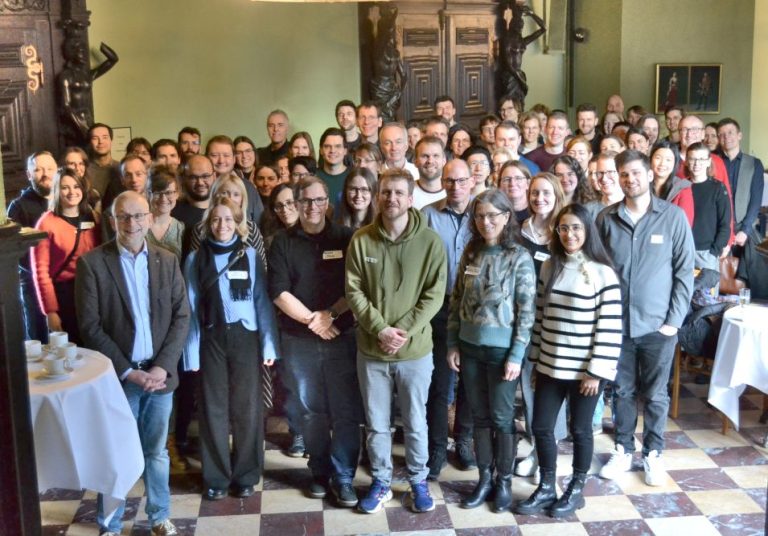LOEWE Research Center DYNAMIC
The Dynamic Network Approach of Mental Health to Stimulate Innovations for Interventions and Change

Eigene Version mit HTML-Feld
Neuigkeiten
We are happy to present a new project flyer with key data and objectives of our research center. For producing this flyer, we would like to thank ProLOEWE.
The first issue of ProLOEWE News in 2025 featured a report by the LOEWE Research Center DYNAMIC regarding the potential applications of artificial intelligence in mental health research and clinical practice.
About us
Since 2024 the LOEWE Research Center DYNAMIC is a multi-university project of the Philipps-University Marburg, the Goethe-University Frankfurt, the Justus-Liebig-University Gießen, the Technical University of Darmstadt, the DIPF | Leibniz Institute for Research and Information in Education and the Ernst Strüngmann Institute for Neuroscience that is conducting research since 2024.

What we do
In DYNAMIC, scientists from the fields of psychology, psychiatry, statistics and machine learning are working together with the shared vision of better understanding mental disorders. To this end, we use multimodal, dynamic data to characterize individual mental health problems. For this purpose, we primarily use dynamic network and machine learning models and also develop the corresponding methods and methodologies.
Are you interested in helping to improve the description of mental health problems? Please look out for DYNAMIC job advertisements on the respective websites of our participating institutions. We will also refer to central job advertisements for DYNAMIC here in the future.
Our goals
We aim to advance the diagnosis of mental disorders, improve patient care and develop new methods for machine learning and network analysis. We are particularly interested in the following:
Developing
methods
- Development of new network models that reflect changes in psychopathology, everyday experience and neurobiology
- Investigating existing (multimodal) data sets with network analysis and machine learning approaches
Rethinking
diagnostics
- Describing patients' mental health problems with a three-week intensive smartphone-based measurement phase, where we track everyday experiences
- Using psychometric, experimental and imaging methods to estimate complex network models
- Integrating different levels of data (biological, psychological, social) into complex network or machine learning models
Improving
treatment
- Predicting treatment outcomes with dynamic networks, hopefully to improve treatment for common mental disorders with better treatment allocation
- Characterizing the course of treatment (psychotherapy, pharmacotherapy and neurostimulation) with dynamic networks







